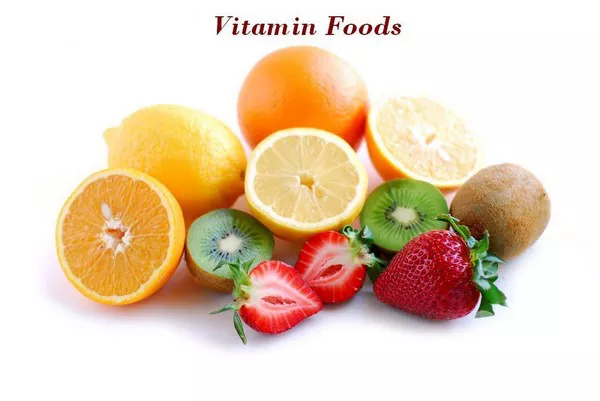Proper nutrition is essential for overall health and well-being, and vitamins play a crucial role in supporting various bodily functions. For women, specific vitamins are particularly important due to their unique physiological needs and life stages. In this comprehensive guide, we will explore the essential vitamins that women should consider taking daily to maintain optimal health and address specific health concerns. Please note that individual nutritional requirements may vary based on factors such as age, lifestyle, and health status. Before incorporating any new supplements into your daily routine, it is advisable to consult with a healthcare professional.
1. Vitamin D:
Often referred to as the “sunshine vitamin,” vitamin D is crucial for women of all ages. It plays a vital role in calcium absorption, promoting bone health and reducing the risk of osteoporosis, a condition more common in women. Additionally, vitamin D supports the immune system, cardiovascular health, and mood regulation. As many women may not get enough sun exposure, especially during the winter months, a vitamin D supplement is highly recommended.
2. Calcium:
Calcium is essential for maintaining strong bones and teeth, particularly during adolescence, pregnancy, and menopause when bone health may be at greater risk. Women need adequate calcium intake to prevent osteoporosis and support overall musculoskeletal health. A calcium supplement may be beneficial for women who don’t consume enough calcium-rich foods like dairy products or leafy green vegetables.
3. Iron:
Iron is vital for women, especially during menstruation, pregnancy, and lactation, as blood loss during these periods can lead to iron deficiency anemia. Iron is critical for carrying oxygen in the blood and supporting energy levels. Women with heavy menstrual periods or those following a vegetarian or vegan diet may need to consider an iron supplement to meet their daily requirements.
4. B Vitamins:
B vitamins are a group of essential nutrients that support various bodily functions, including energy metabolism, nerve function, and red blood cell production. For women, in particular, B vitamins such as B6, B9 (folic acid), and B12 are crucial during pregnancy to support fetal development and prevent neural tube defects. Additionally, B vitamins can help alleviate premenstrual symptoms and support cognitive function. Women with certain dietary restrictions or those experiencing high levels of stress may benefit from a B-complex supplement.
5. Folate (Vitamin B9):
Folate, or folic acid in its synthetic form, is essential for women of childbearing age as it plays a crucial role in early pregnancy to prevent neural tube defects in the developing fetus. Pregnant women are often advised to take a prenatal vitamin containing the recommended amount of folic acid. Even if pregnancy is not a current consideration, consuming sufficient folate is vital for overall health and is found in foods like leafy greens, citrus fruits, and legumes.
6. Omega-3 Fatty Acids:
Omega-3 fatty acids, particularly EPA (eicosapentaenoic acid) and DHA (docosahexaenoic acid), are essential for heart health, brain function, and reducing inflammation. For women, omega-3s are crucial during pregnancy for fetal brain development and reducing the risk of postpartum depression. Additionally, omega-3s can help alleviate menstrual pain and support skin health. Women who do not consume enough fatty fish like salmon or flaxseeds may consider an omega-3 supplement.
7. Vitamin C:
Vitamin C is an antioxidant that supports the immune system, promotes collagen synthesis for skin health, and enhances iron absorption. As women often have unique skin care needs, vitamin C can be beneficial for maintaining a healthy complexion. It is readily available in citrus fruits, strawberries, and bell peppers.
8. Vitamin E:
As a powerful antioxidant, vitamin E helps protect cells from oxidative damage. For women, vitamin E can support skin health, reduce menstrual pain, and alleviate symptoms of premenstrual syndrome (PMS). It is found in foods like nuts, seeds, and vegetable oils.
9. Magnesium:
Magnesium is involved in over 300 biochemical reactions in the body, including muscle function, nerve function, and bone health. It can also help alleviate menstrual cramps and support overall relaxation. Women who experience muscle cramps or have difficulty sleeping may benefit from a magnesium supplement.
10. Probiotics:
While not a vitamin, probiotics are beneficial bacteria that support gut health and the immune system. For women, probiotics can help maintain a healthy vaginal microbiome, preventing common infections like yeast infections and urinary tract infections. Probiotics are available in supplement form or can be found in fermented foods like yogurt and kimchi.
Conclusion:
As women have unique nutritional needs, incorporating specific vitamins into their daily routine can support overall health, prevent deficiencies, and address specific health concerns. Vitamin D, calcium, iron, B vitamins, folate, omega-3 fatty acids, vitamin C, vitamin E, magnesium, and probiotics are among the essential nutrients that women should consider taking daily. However, individual requirements may vary based on age, life stage, and dietary habits. Before starting any new supplements, it is advisable to consult with a healthcare professional to ensure that they are suitable for your specific needs and health status. By making informed choices and prioritizing essential vitamins, women can take proactive steps towards achieving and maintaining optimal health and well-being throughout their lives.


